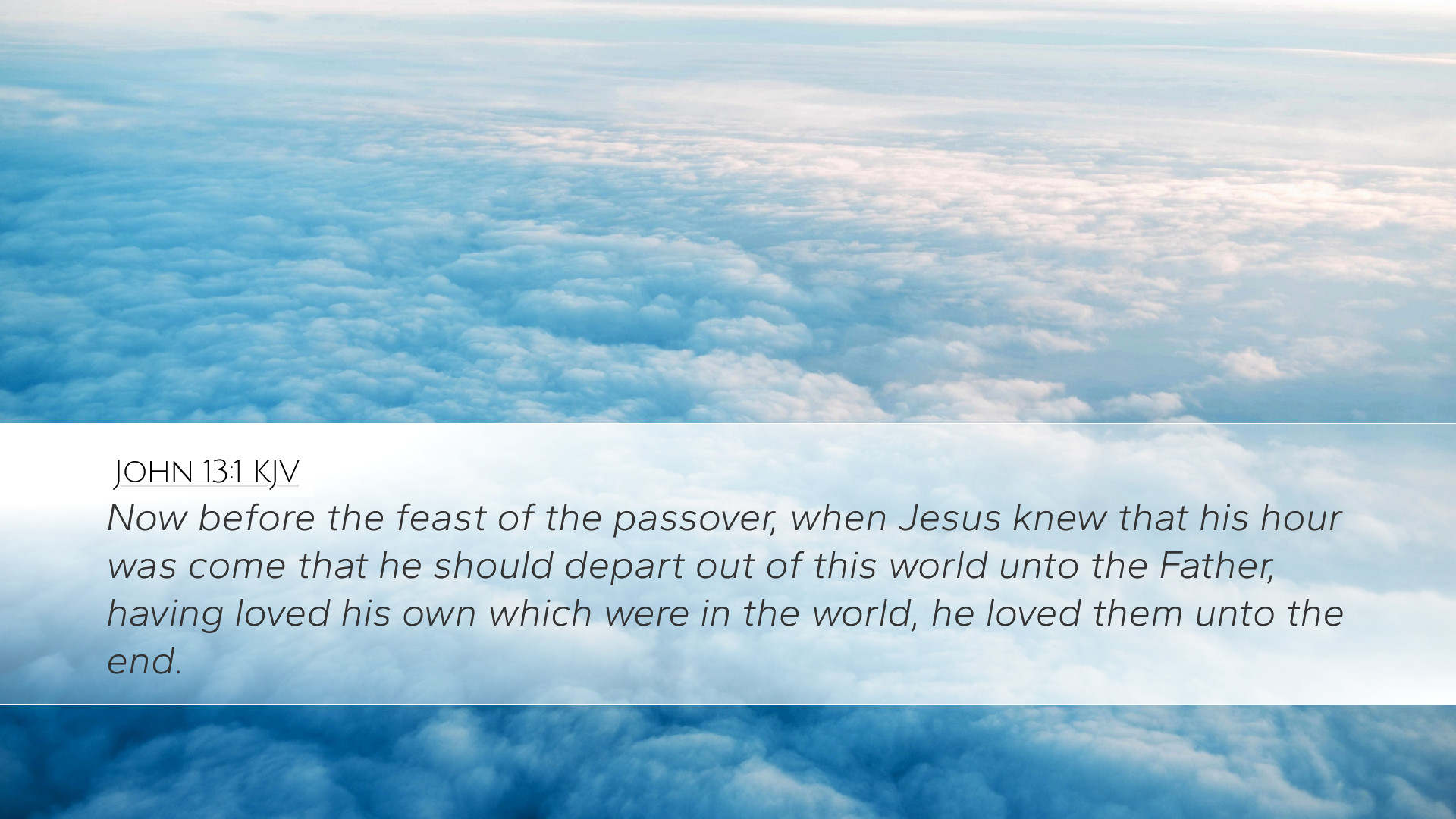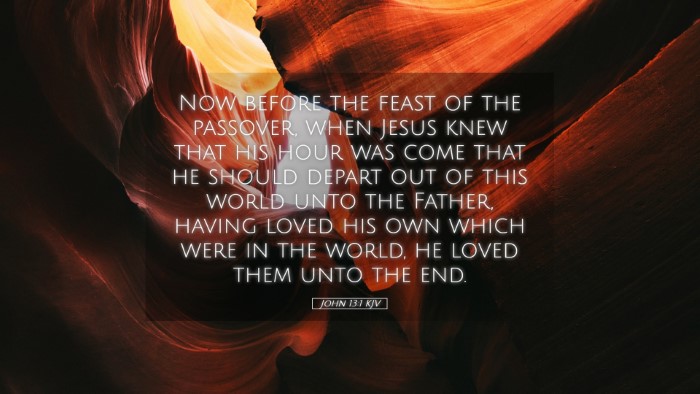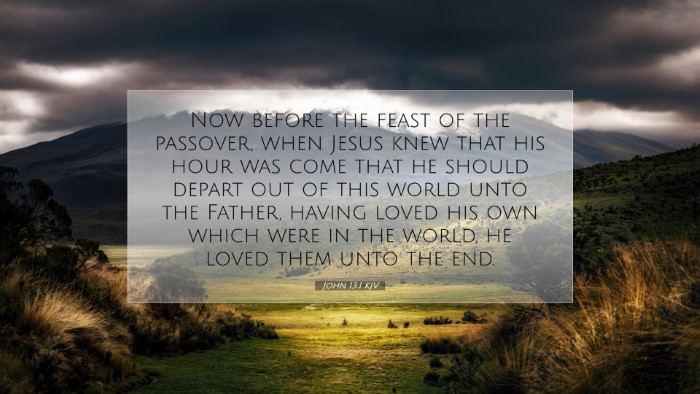John 13:1 - Exegetical Commentary
Verse: "Now before the Feast of the Passover, when Jesus knew that his hour had come that he should depart out of this world unto the Father, having loved his own which were in the world, he loved them unto the end."
This verse serves as an introduction to one of the most profound moments in the Gospels—the Last Supper. John sets the stage with significant theological and narrative elements that demand careful analysis.
1. Contextual Background
The verse opens "before the Feast of the Passover," anchoring the events within a pivotal Jewish festival that commemorates the deliverance of Israel from Egyptian bondage. The Passover motif also foreshadows the impending sacrifice of Christ, the Lamb of God.
According to Matthew Henry, the timing indicates that this event is not merely historical but redemptive, setting the context for Jesus’ impending crucifixion. The Passover would soon give way to the New Covenant initiated by Christ’s death and resurrection.
2. Theological Implications
John's Gospel often emphasizes the sovereignty of Jesus; here, it is critical to note that "Jesus knew that his hour had come." This knowledge signifies his control over the events to unfold. Albert Barnes articulates that Jesus' awareness of his mission underscores the significance of his sacrificial love.
Adam Clarke remarks that “his hour” implies not just a temporal aspect but a divine appointment. It is essential when studying this aspect of John's Christology to recognize the deep theological currents of divine foreknowledge and predestination.
3. Love in Action
Central to this verse is the notion of love, encapsulated in the phrase "having loved his own." This initiates a profound reflection on the nature of Jesus’ relationship with his disciples. Matthew Henry emphasizes that this love is not fleeting or superficial; it is a committed, enduring love that persists even amidst betrayal and denial.
- Unconditional Love: The love Jesus expresses is universal, extending to all his disciples, which indicates that genuine love encompasses both the faithful and the unfaithful.
- Selfless Love: The phrase "he loved them unto the end" signifies that Jesus loved fully and sacrificially, demonstrating that true love often involves suffering and service.
4. The Nature of Christ's Ministry
This verse encapsulates the essence of the Christian ministry—a ministry founded on love and service. Adam Clarke suggests that this love was not only displayed in words but would be vividly demonstrated in the act of washing the disciples' feet, which follows in the subsequent verses.
Albert Barnes also notes the aspect of continual love: "He loved them unto the end," suggesting that Jesus’ love is persistent and guided by purpose, even as he approaches death.
5. Implications for the Believer
For contemporary believers, this verse invites profound reflection about their relationship with Christ. If Jesus loved his own till the end, how should Christians live in response to such love? Matthew Henry outlines that true discipleship involves reflecting the love of Christ in our relationships with others.
Moreover, understanding that Jesus is mindful of his followers even in times of strife provides encouragement. Adam Clarke emphasizes that the faithful can find solace in the knowledge that Christ not only loves them but is also actively involved in their lives.
6. Conclusion
John 13:1 is a rich tapestry woven with themes of love, sacrifice, and divine sovereignty. As we delve deeper into the Gospel of John, starting from this verse, we encounter a Jesus who is intimately aware of his mission and profoundly loving towards his followers.
For pastors, theologians, and students alike, this passage serves as a bedrock for understanding the nature of Christ’s love and the call to embody that love in our own lives. The examination of this single verse can lead to transformative insights about the character of Christ and the nature of his ministry among us.


